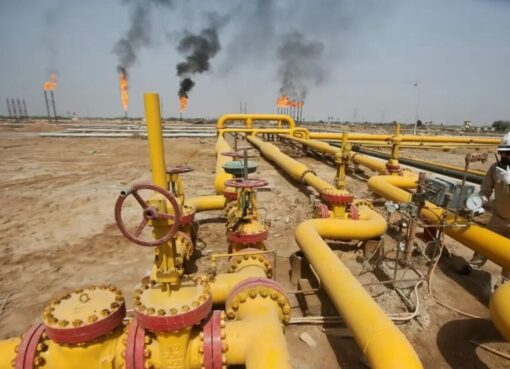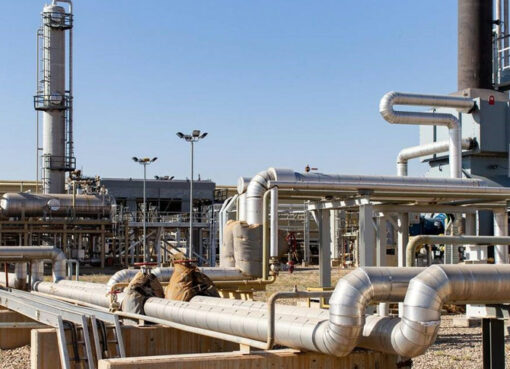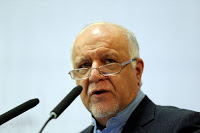
Iraq’s possible loan accord with the International Monetary Fund may unlock at least $15 billion in aid this year and next, central bank chief Ali al-Allaq said, helping OPEC’s second-biggest producer repair finances battered by cheap oil and the war with Islamic State militants.
Allaq said in an interview in Beirut he expects Iraq to receive $10 billion in IMF and World Bank assistance. A further $5 billion pledge may come from the Group of Seven meeting in Tokyo this month, he said.
“They will discuss supporting Iraq, but that’s linked to how convinced they are of the commitments” the country is undertaking under the IMF accord, he said. “So in total, we will receive $15 billion, possibly more, in 2016 and 2017.”
IMF officials are holding talks with the government this week in Jordan over a standby loan deal. If successful, Iraq will be the first major oil producer in the Middle East to secure a loan accord with the Washington-based lender.
Oil producers from Venezuela to Riyadh have slashed spending to counter the plunge in crude prices. For Iraq, the challenge was compounded by a costly war against IS militants, who captured swathes of the country’s territories to set up a so-called Islamic caliphate.
Treasury Bills
Under the tentative agreement with the IMF, the government would need to issue 13 trillion dinars ($10.9 billion) in treasury bills that the central bank would buy to finance the budget deficit, assuming that the price of oil remains at $31.75 per barrel.
“But if the price of oil hits $40 then we probably don’t need that amount to cover the deficit,” Allaq said.
The country is also mired in political turmoil. Hundreds of demonstrators pulled down blast walls and forced their way into Baghdad’s Green Zone — which houses embassies, the Iraqi parliament and government ministries — on April 30 to demand more efforts to fight corruption and to protest what they regard as sectarianism in cabinet appointments.
Allaq said he has seen “no signs” that the unrest could affect talks with the IMF.
Iraq is rated B- at S&P Global Ratings, six levels below investment grade. The yield on the country’s $2.7 billion Eurobonds due in 2028 has declined 33 basis points this year to 10.4 percent, according to data compiled by Bloomberg.
Source: Boomberg, May 15, 2016








Comment here